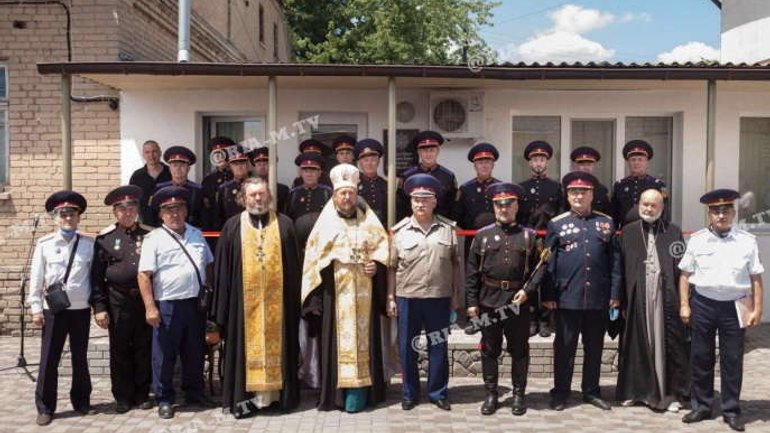Head of the Foreign Intelligence Service points to major threats in the religious sector

Hybrid war, armed conflict, Russia's aggressive policy regarding internal socio-economic and political processes in Ukraine, and attempts by the Kremlin authorities to undermine the foundations of support for our state at the international level are the main threats to Ukraine, according to the Foreign Intelligence Service.
"The strategic goals of the Russian political regime, despite any cosmetic statements by Moscow officials, remain unchanged: this is the return of Ukraine to its zone of full influence, the elimination of its national identity and independence, the establishment of external control over the processes taking place in our country, the termination of the existence of Ukraine as a sovereign state.
The Russian political regime, using multidimensional hybrid forms and methods, tries to achieve advantages in the military, political, economic, information and cybersecurity sectors, incites social conflicts based on language and religion,” the article says.
Valeriy Kondratyuk named one of the Kremlin's forms of influence on Ukraine in the religious sector — the promotion of the ideas of the 'Russian Orthodox Church', and the Kremlin's special project — paramilitary formations within religious communities with the assignment of their law enforcement functions.
“One of the forms of Kremlin pressure on our state is to promote the idea of the ‘Russian Orthodox Church’,” the head of the foreign intelligence Service said in the article. Russian special services, having levers of pressure on the religious sector, use the ROC both hard (the inspiration for protest actions that can quickly turn into demonstrative clashes with law enforcement or provocateurs) and soft power (influence on the minds of believers). In this direction, Russia uses all available technologies to counter the process of formation of the Orthodox Church of Ukraine, manipulating the feelings of Ukrainian believers and trying in every possible way to maintain its influence on them.
Another special project of the Kremlin is its attempts to create and legalize paramilitary formations in the regions of Ukraine within religious communities assigning law enforcement functions to them. We are referring to the activation of Pro-Russian ‘Cossack’ organizations that are trying to duplicate the functions of the police at the local level to protect public order. Such cases were recorded, in particular, in Kyiv, Vinnytsia, and Zaporizhzhia regions.”









